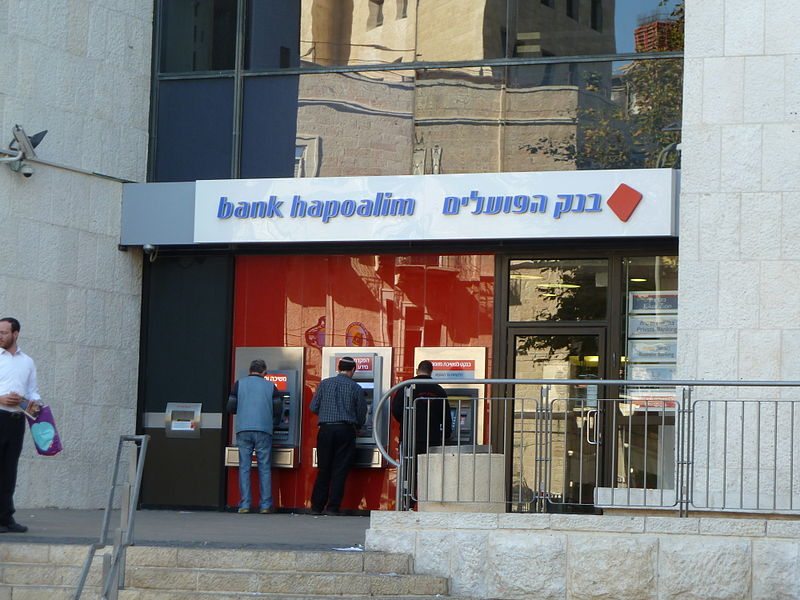By Zion Kenan-CEO Of Bank Hapoalim
Globes, Tel Aviv, Israel.
Bank Hapoalim has taken upon itself to lead, promote, and encourage innovation in the Israeli economy in general and in the banking system in particular.
Israel is justifiably known as the Start-up Nation and the number of start-ups in the country is the highest in the world, per capita. In 2015, exits by Israeli start-ups totaled $7 billion; we have great and impressive achievements, and we can be proud of them, but we must not be satisfied with them.
The contemporary world is progressing and changing at its fastest pace in human history. This race is hard and demanding, but anyone who does not adjust to the pace will lag behind and even fall off the map. Israel must not lag in this race. We have the tools, the people, and the technology and business culture, which if we foster then, can guarantee that we will always be at the forefront of global technological progress.
I am pleased and proud that Bank Hapoalim is leading and promoting the integration of technological progress and the business sector. This is a revolution for us — conceptually, culturally, and business-wise. In recent years, Bank Hapoalim has known how to maintain its status as Israel banking leader and successfully deal with the pace dictated by the digital age and rising competition. But, from day to day, the pace of change has accelerated, with the result that we must be faster, more efficient, and sharper.
Our customers demand more from us. They demand high-quality, personalized, and more accessible service; they demand a new banking experience.
Digital banking apps are now being taken for granted. Naturally, we are still providing our technology customers the most professional banking experience, but that is not enough for us. We are instilling the concept that managers should have technology dialogue skills, know the language of technology, and spot initiatives with the potential to promote their organization. Technology must be a part of us; this isn’t “digital banking”, but banking in a digital world.
Our vision stands behind the measures we lead: a vision of a business culture suited for the digital world and which marches at its pace; an open and dynamic culture that creates confidence, flexibility, and rapid responses both internally and externally with our relations with our customers; a culture that uses sophisticated tools for smart analysis of tasks, knowledge-sharing, skills, and more interdisciplinary interfaces.
This is a culture of constant learning and constant change; a culture of sales in that the business world is complex and volatile in which we must develop our skills to stay effective in the face of uncertainty, because in the 21st century world, surprise is what can be expected the most.
We are active partners in the effort to initiate, encourage, create, and market new technologies, especially in fintech.
As part of the bank’s fintech program, we have met more than 350 companies. We have installed the technologies of more than ten companies, and we invested in new start-ups in the past year. But the fintech program is just the tip of the iceberg of our activity in the world of digital innovation: we founded Poalim Hi-Tech — a unique network that provides a broad range of comprehensive services for high-tech companies, including start-ups. We also run the BankApp competition, the second of which is currently underway, offering start-ups the opportunity to develop mobile financial apps in cooperation with the bank and use of its database. 600 entrepreneurs applied to the competition.
This year, we held a hackathon for the bank’s employees. The response was incredible: we received 120 offers, of which 27 offers submitted by heterogeneous teams from different bank departments were chosen. We have established a network of digital branches, which include state-of-the-art technological innovations in the industry, while simultaneously providing personal service of the highest professional standard.
In addition, we will shortly launch Israel’s first fintech innovation laboratory in collaboration with the Technion Israel Institute of Technology. This laboratory will mainly focus on banking big data in fintech applications.
Finally, there is the SmartUp3 competition, which is now drawing to a close. The four start-ups selected in the program this year well demonstrate the potential in striving for innovation. We were strongly impressed by the creativity shown by the participants, which is so impressively expressed in the selected proposals.
I wish for Israeli high tech, especially fintech, to continue to think, initiate, market, and thrive for the good of the economy and for the future of all of us.














































































































































































































































































































































































